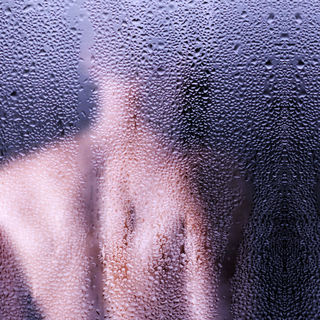Sleep
Why Do Before-Bedtime Bathing Rituals Improve Sleep?
Warm water lowers the body's core temperature and may facilitate better sleep.
Posted July 22, 2019
"I treat my transition to sleep as a sacrosanct ritual, and my bath is the centerpiece. I keep a candle flickering nearby—and I prolong my bath if I'm feeling anxious or worried about something." —Ariana Huffington
"The truth is, you know, we need our anodynes. You know that word anodynes? We need that in life sometimes. A good warm bath can be one for you, or a whatever." —Al Pacino

Anecdotal evidence suggests that taking a warm (or hot) bath before bedtime helps people fall asleep more quickly and sleep better. People from all walks of life have realized the sleep-related benefits of what scientists call "water-based passive body heating" (PBHwb) and make evening bathing rituals a part of their daily routine.
In the literary world, Sylvia Plath's turbulent life experiences appear to have unearthed some of the benefits associated with PBHwb. In Plath's semi-autobiographical novel The Bell Jar, the protagonist (Esther Greeenwood) famously says, "There must be quite a few things a hot bath won't cure, but I don't know many of them." (p. 19)
A "Tuesday Morning: March 18" diary entry published in The Unabridged Journals of Sylvia Plath states: "Last night . . . I took a hot bath: therapy: the kinks wore out, and I rose purged, for a day, of the sticky collection of sweat and exudings, powdered, in a fresh-laundered torn white-cotton nightgown with tiny purple roses sprigged over it." (p. 352) Based on Plath's biography, one could speculate that warm baths are not a panacea for maintaining psychological and physical well-being across a lifespan. Nonetheless, in the short-term, PBHwb does seem to help people feel better and sleep better.
Last year, in an interview with People magazine, Gwyneth Paltrow discussed how she stumbled on the pre-bedtime benefits of PBHwb using layperson terms. "I take a bath every single night. It's non-negotiable. It's just like, I do it every night," Paltrow said. "My kids are welcome to come in and chat with me if they need to—it's not like I'm in a meditation or something. But I just need that time and so I just take it. It's really the only time I take for myself every single day, regardless of what is going on." Like many people, Paltrow strongly believes that taking a warm bath before bedtime helps her "wash the day off and decompress."
Recently, a group of biomedical engineers from The University of Texas at Austin published a paper (Haghayegh et al., 2019) that provides some scientific explanations for why so many people are uncompromising zealots about making sure a warm bath or shower is part of their nightly routine. This paper, "Before-bedtime Passive Body Heating by Warm Shower or Bath to Improve Sleep: A Systematic Review and Meta-Analysis," appears in the August 2019 issue of Sleep Medicine Reviews.
As the authors explain, "PBHwb of 40–42.5 °C [104–109 °F] was associated with both improved self-rated sleep quality and [sleep efficiency] SE, and when scheduled one to two hours before bedtime for little as 10 minutes significant shortening of [sleep onset latency] SOL." Taken together, the evidence presented in this systematic review and meta-analysis helps to explain why before-bedtime bathing rituals are both psychologically soothing and a potent non-pharmacological intervention that promotes better sleep.

According to researchers, taking a warm shower or bath stimulates the body's thermoregulatory system and increases blood circulation from the body's internal core to the palms of the hands and soles of the feet. This process "augments the distal-to-proximal skin temperature gradient to enhance body heat dissipation, which decreases your body's core temperature."
In day-to-day life, the body's core temperature tends to fluctuate based on 24-hour cycles associated with circadian rhythms. The average person's core body temperature is slightly higher during daytime hours and lowest at night during deep sleep.
Typically, the average person's circadian cycles trigger a cooling of core body temperature by 0.5 to 1.0 °F about an hour before his or her regular bedtime. This shift in core body temperature is an integral part of maintaining a healthy sleep-wake cycle. Therefore, the researchers speculate that PBHwb via a warm shower or bath before bedtime is a way to hack the body's thermoregulatory system and promote better sleep by lowering core body temperature.
When is the best time to trigger water-based passive body heating for a good night's sleep?
The findings of this preliminary meta-analysis suggest that the optimal time to take a warm shower or bath to improve sleep is about 90 minutes before hitting the sack. That said, more research is needed before drawing any final conclusions or giving concrete prescriptive advice. The authors said, “Additional investigation is required because the findings regarding PBHwb are limited by the relative scarcity of reported research, especially its optimal timing and duration plus exact mechanisms of effects.”
References
Shahab Haghayegh, Sepideh Khoshnevis, Michael H. Smolensky, Kenneth R. Diller, Richard J. Castriotta. “Before-Bedtime Passive Body Heating by Warm Shower or Bath to Improve Sleep: A Systematic Review and Meta-Analysis.” Sleep Medicine Reviews (First published online: April 19, 2019) DOI: 10.1016/j.smrv.2019.04.008




